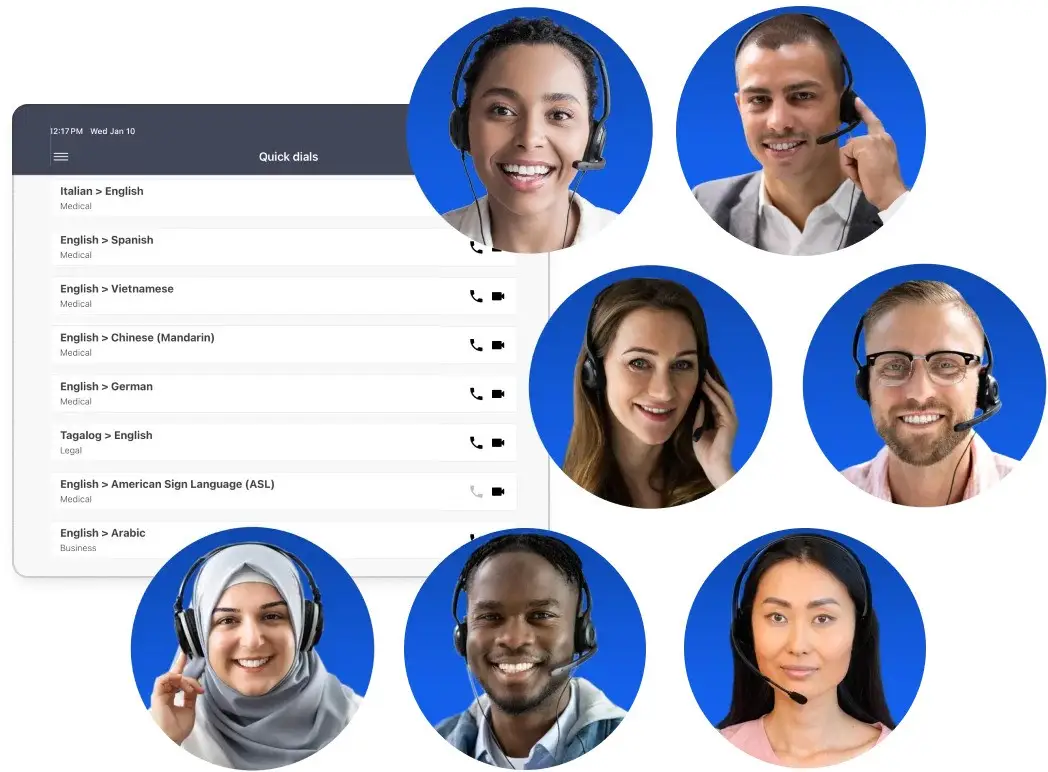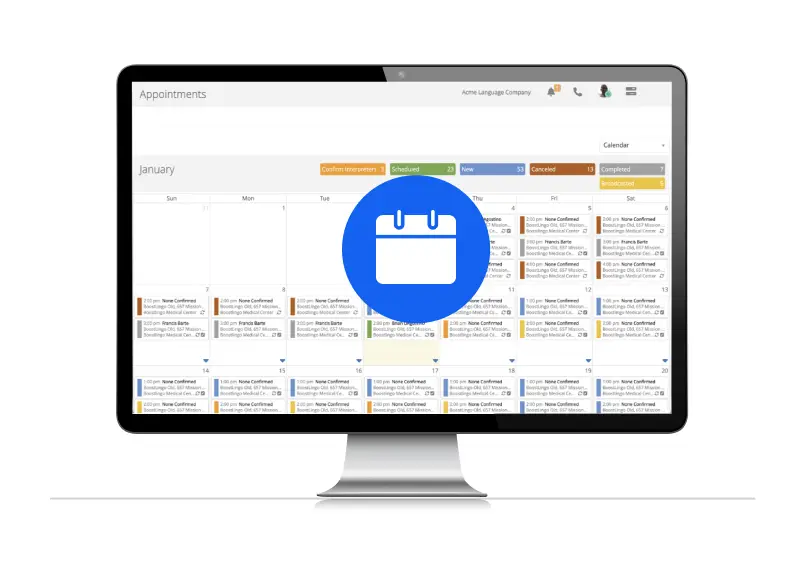Medical Interpreter Services

Why Boostlingo?
- 24/7 Access to Medical Interpreters
- Qualified and Compliant Interpreters
- 300+ Languages
- Easy-To-Use App
- Dedicated Support
- Save 20%
On-Demand Interpretation in Action
Learn about the main features and benefits of Boostlingo On-Demand, including: Connecting with interpreters in seconds, use on any device, adding new users with ease, scheduling sessions, customizing call settings, and accessing call logs to manage language services.
Buyers Guide to Finding an On-Demand Interpretation Partner
This free ebook explores why on-demand interpretation is an essential tool for compliance and serving diverse communities and prepares you to evaluate potential partners.

Provide the Best Possible Care Regardless of Language
Communication is essential to delivering care. With over 25.7 million limited English proficient (LEP) individuals and 11 million Deaf or Hard of Hearing (D/HoH) people in the U.S., don’t let language barriers stop you. Our technology lowers the barriers to language services and reduces the administrative burden on your team.
On-Demand Interpreting
Connect in seconds with the largest global network of interpreters, 24/7. Set your team up for success on any device. It’s powerful and easy.
Interpretation Management
Integrate onsite and remote interpreter services. Manage interpreter scheduling, communications, analytics, and billing in one place.
Translation Services
Translate your patient forms, discharge instructions, and more. Tap into our network of professional translators who are ready to bring your message to life.
Related Case Studies
See how Boostlingo customers around the world are driving growth with medical interpretation services.

Aeroflow Health

Goshen Health

Canadian Pediatric Hospital

Orthopedic Institute
Medical Interpretation FAQs
What is a medical interpreter? What is their primary job and what do they do differently from other interpreters?
Just like other interpreters, they display excellent proficiency in the languages they speak and demonstrate the ability to interpret between them effectively. For medical interpreters, what sets them apart from other interpreters is that they have a thorough understanding of complex medical processes and terminologies in the medical field, allowing them to navigate through healthcare settings effectively.
Why is medical interpretation important?
As an example, there are currently over 57 million Spanish speakers in the United States and this figure is constantly on the rise. Healthcare centers need to be prepared with an effective language access plan since some of their patients may speak Spanish as their primary language. Failure to communicate effectively may lead to grave medical errors, poor health outcomes, and even legal liability. Medical interpretation is a key element in providing equal access to healthcare for all patients, regardless of the languages they speak.


